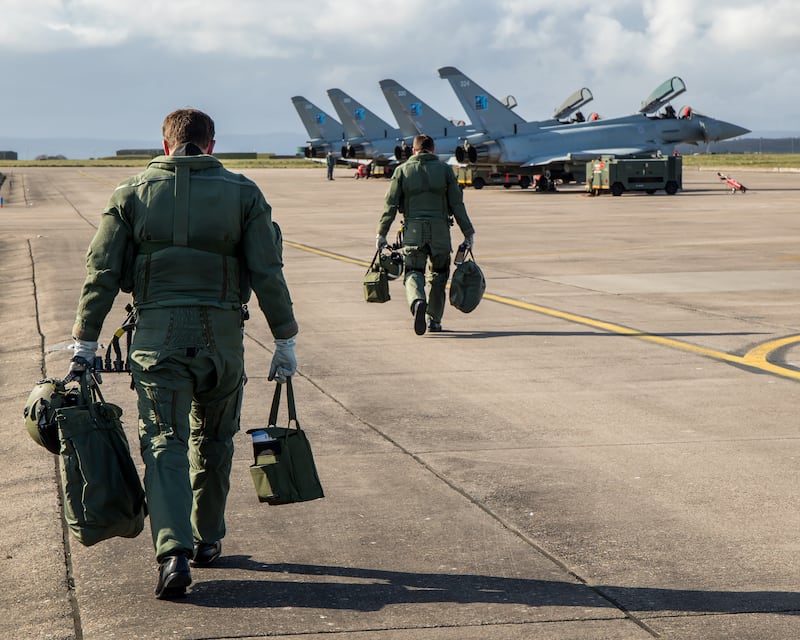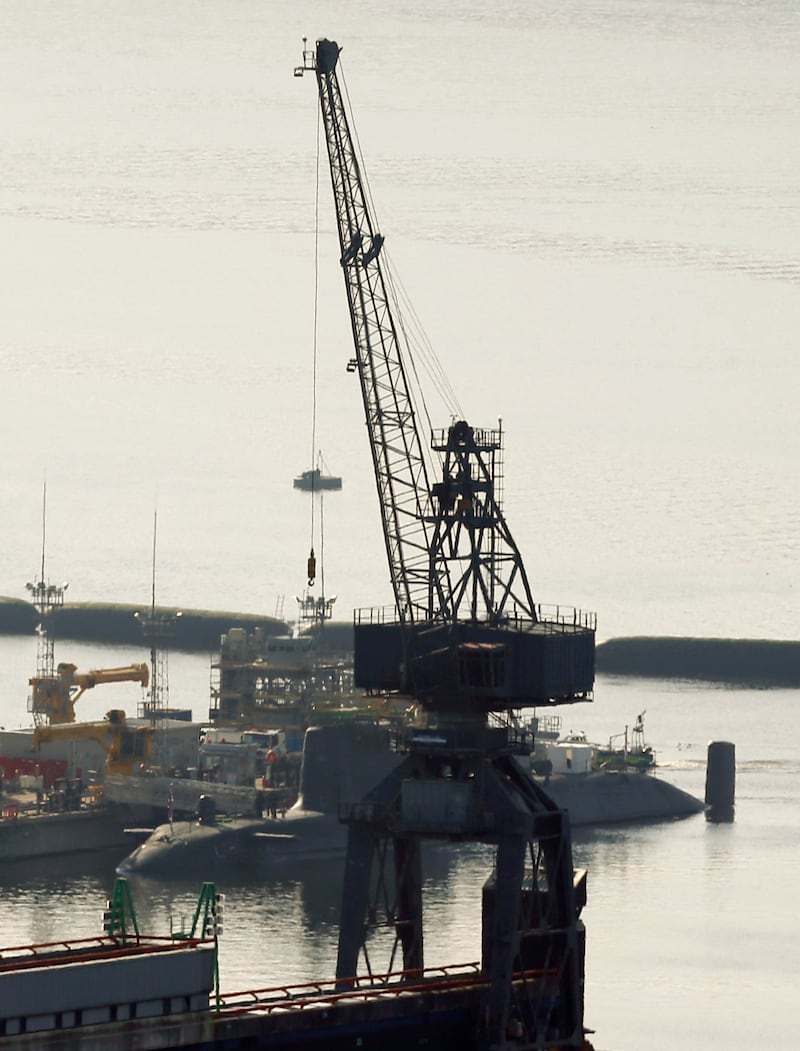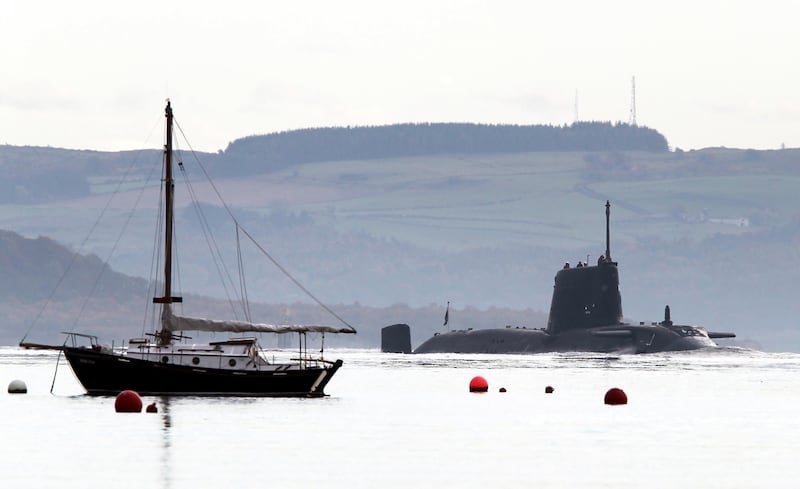The UK’s armed forces would likely remain in Scotland for at least 20 years if the country became independent, the deputy director general of a leading defence think tank has said.
Professor Malcolm Chalmers also said Trident could stay in an independent Scotland for more than a decade because of the difficulties in finding a new home for the nuclear deterrent.
The deputy director general of the Royal United Services Institute was responding to the Scottish Government’s latest prospectus paper on independence.
Released last week, it set out plans for defence in an independent Scotland – including Nato membership, spending 2% of GDP on defence and the creation of a Scottish defence force and intelligence agency.
It also said Trident should be removed in “the safest and most expeditious manner possible” following independence.

However Prof Chalmers said any “forcible denuclearisation” would sour independence negotiations between Edinburgh and London.
He welcomed the paper’s statements on co-operation with the rest of the UK, saying: “One of the things which I haven’t seen emphasised so much in previous documents but which is quite central to this, which I would welcome, is there’s more focus on the importance of joint working with the UK for a transitional period.”
In a such a scenario, he said a Scottish military would be grown “under the protection of a UK force”, but little would change on the first day of independence in terms of the military bases on Scottish soil.
Prof Chalmers said: “After 10 or 15 years there’ll be a Scottish, legally independent Scottish force, which will be under the control of the Scottish Government.
“But it will be very closely integrated with the UK force and the degree of integration, degree of independence will be something that will evolve over time.”

He said the armed forces of Scotland would likely have to rely on the UK for a number of capabilities.
It would be in the UK’s interest to continue operations like the RAF’s quick reaction force at Lossiemouth, Prof Chalmers said, but a basing agreement would be needed to set out the legality of the arrangement.
He added: “There’s no suggestion (in the paper) that all UK forces will ever withdraw.
“They say our most enduring security partnership will be with the UK.
“So to me that suggests that after 20 years of independence, there will still – if there’s a need to do so – there’ll still be UK conventional forces on Scottish soil.”
The issue of Trident would be the most important, he said, with strong incentives for both sides to come to an agreement.

Scottish nationalists have long committed to removing the nuclear deterrent from north of the border, but the facilities at Faslane and Coulport are the only ones in the UK which can house the submarines and nuclear warheads for long periods.
Prof Chalmers said: “I cannot imagine amicable divorce which involves the forcible denuclearisation of the UK, which rapid expulsion would be.
“In those circumstances, you would get a very strong reaction from the UK which would hold the whole process hostage.”
Such a dispute could endanger an independent Scotland’s membership of the EU and Nato, he added.
Creating new facilities in England would take “at least a decade”, he said, with the UK unlikely to set a fixed timetable to remove Trident.
A Scottish Government spokesperson said: “As proposed in the paper, upon securing a vote for independence, this Scottish Government would pursue negotiations with the UK Government for the removal of nuclear weapons from Scotland as quickly as possible, but just as critically, done safely.
“Our position on nuclear weapons would be consistent with other Nato members like Denmark, Sweden and Finland, who do not host nuclear weapons on their territory.
“This government would also identify arrangements for joint working with the UK for a transitional period, and a timetable for UK forces to gradually draw down their presence in Scotland as our own capability was built up.
“Given our proximity, an independent Scotland’s most enduring security partnership would be with the UK, and it would be in both countries’ interests to ensure this was constructive from the outset.”









